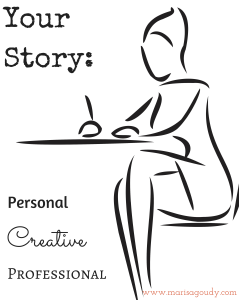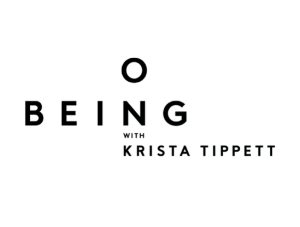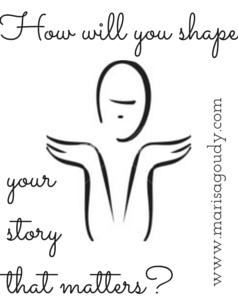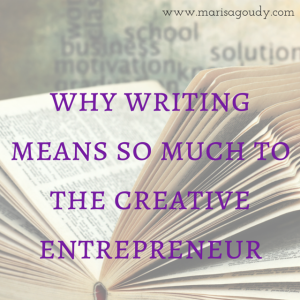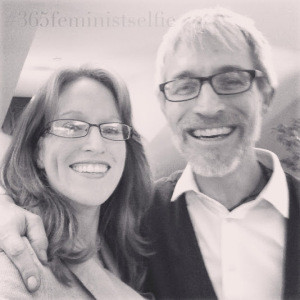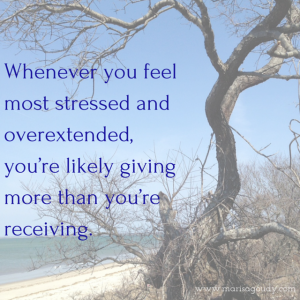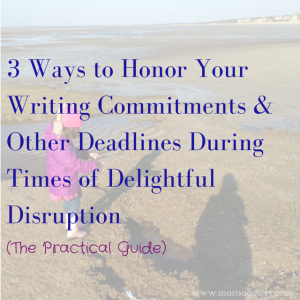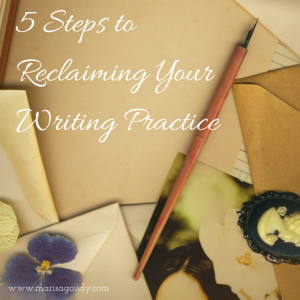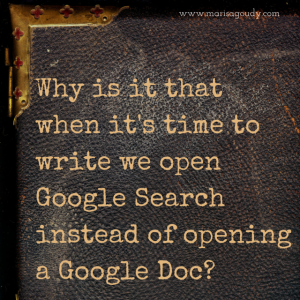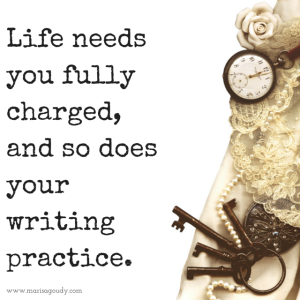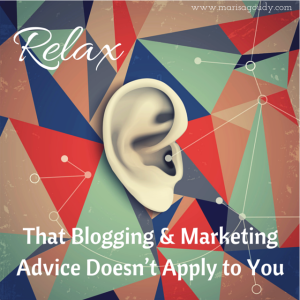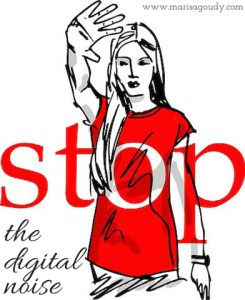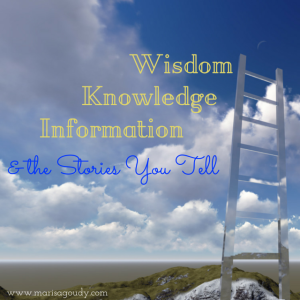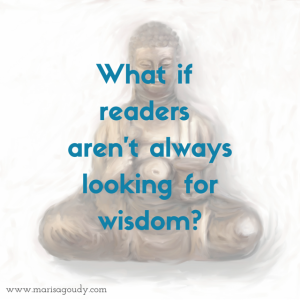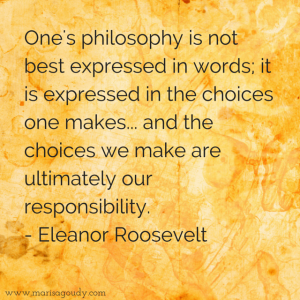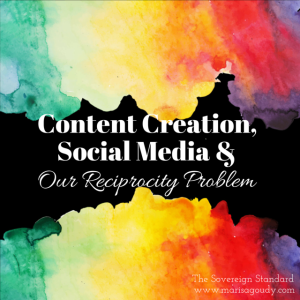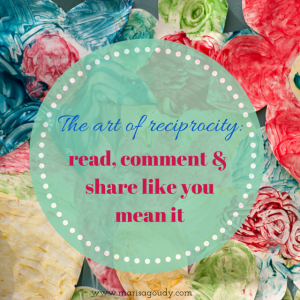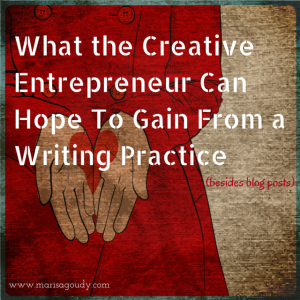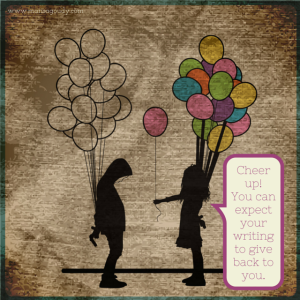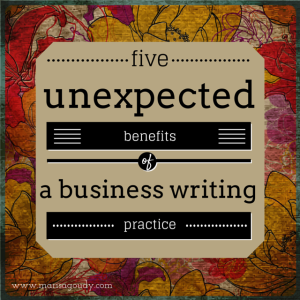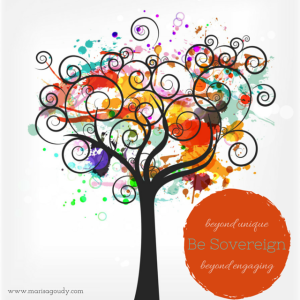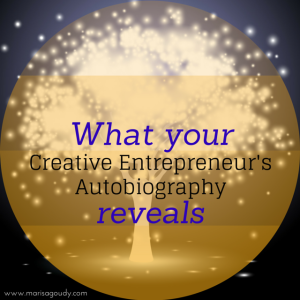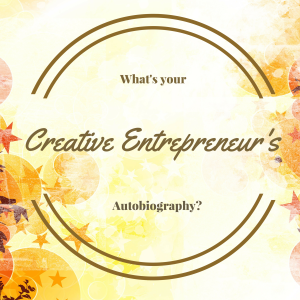Sovereign Standard, Issue 16 I’m a frugal lass. I squeeze the toothpaste tube for a week longer than any sane person would and I still manage to have fresh breath.
I’m a frugal lass. I squeeze the toothpaste tube for a week longer than any sane person would and I still manage to have fresh breath.
If there’s still some meaning to be eked out of a revelation like “I gotta quit entrepreneurship,” I’m going to find it. I’m obligated to find it. (Yeah, I get that this can be obsessive, exhausting, and self-defeating.)
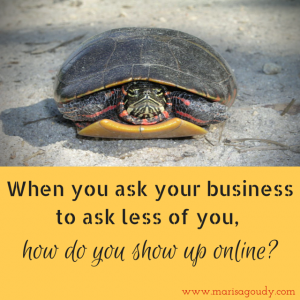 Then I’m going to spend a few hours crafting it into words. And then I am going to share it with my readers - even if the article doesn’t take me one inch closer to attracting copywriting clients or further my creative projects.
Then I’m going to spend a few hours crafting it into words. And then I am going to share it with my readers - even if the article doesn’t take me one inch closer to attracting copywriting clients or further my creative projects.
Blindness? Egomania? Fear of missing out?
Can we call it dedication? I’ve found a tribe who, like me, is feeling the crush of creative entrepreneurship and the idea just won’t leave me alone.
You’re downshifting from entrepreneurship into freelancing. It’s time to do the work that immediate rather than pioneering a visionary program or building a firm (at least for now).
Living and working like the creative-in-business you want to be may mean adjusting how you do business by offering the basic, 'useful' services.
This is why I am shifting my attention to offering the right people my copywriting and editing services while the 'real' creative work gestates in the dark for a while.
Read the rest of Burned Out? Maybe It’s Time to Split the Creative from the Professional
When it comes down to it, “don’t waste anything!” probably isn’t a good enough reason to keep writing about a concept that may or may not be aligned with personal and professional goals.
So I ask myself (in the way I know best - a piece of writing I intend to publish) do I even need to keep blogging and sending out the Sovereign Standard if I’m redefining my relationship to my business?
As you ask your business to ask less of you, how will you show up online?
So, what if you are called to make a shift in how you relate to your business?
Tons of your behind the scenes habits and attitudes will change, but the hardest changes you make will relate to how you decide to show up online.
You know you still have to think about your visibility, consistency, and reputation. Even if you're happily shutting down a larger company, with creative dreams like yours, there's going to be a time when you want an audience who knows and loves you.
Over-hyped as it may seem, content marketing is key to building a business in 2015. It's key to building a creative platform as well. We hear about “the importance of creating compelling content, of all lengths, and across all platforms” from countless sources. Everybody’s doing it and if you’re serious about building a business or a platform as an author or thought leader, you have to do it too.
(Wait, is that really true?)
Not surprisingly, I do think writing is important - even essential. But, you don't blog because "they" say you must or because you think it's fun compete against mega stars and companies with mega budgets as everyone vie for the web surfers' finite attention.
You create written content because it supports your personal, professional, and creative growth. Ultimately, you need to establish a writing practice that gives back to you.
Must you write for your business (even if you’re scaling it back)?
You've got so much going on. You just want a break. The point is to devote creative energy to the work that matters, not to the marketing and the ephemeral blog posts...
Can you just quit?
As with most answers to important questions, there is no one single “should” when it comes to deciding how you’ll figure out how to show up after you change the rules to your own professional game.
Instead, there are just more questions. This is what I'm asking myself as I restructure my relationship with my work.
How do you write for a changed business? The practical marketing questions
- Do I have enough contacts and other resources to pull in the clients I need without doing my own content marketing?
- What do I blog about now that I am running a more “low key” business that’s built on my scale, not to be scalable?
- Do the clients who hire a smart, competent freelancer want something different than clients who are investing with a creative entrepreneur?
Pause. Here's an answer to those last two questions: Remember that clients don’t really care about what you call yourself as long as you get the work done. And readers don’t care either as long as you’re interesting and helpful.
A new opportunity to prioritize writing for business (or not) and to honor your creativity no matter what
Yes, no, maybe? Business writing is time consuming enough without adding the pressure of an existential blogging crisis on top of it all. Let's cut through the deliberation and establish what's most important:
If you still have to earn a livelihood as a self-employed person, you fundamentally need to focus on the income-generating activities that will sustain you today, tomorrow, and in the near future.
And, if you want to be the person you know you're mean to be you also need to honor and creative acts will nourish you today, tomorrow, and in the near future.
To that end, I'm going to ask myself these three questions before I sit down to write another word on any project.
- Am I writing this for myself and/or to further my creative vision?
- Am I writing this to win real business?
- Am I writing this because part of me has been trained to equate “likes” and spikes in my site stats with approval?
Tell me, what other questions do you ask yourself as you decide how to spend your precious writing time. And if you have any answers? Glory, glory, they're more than welcome too!
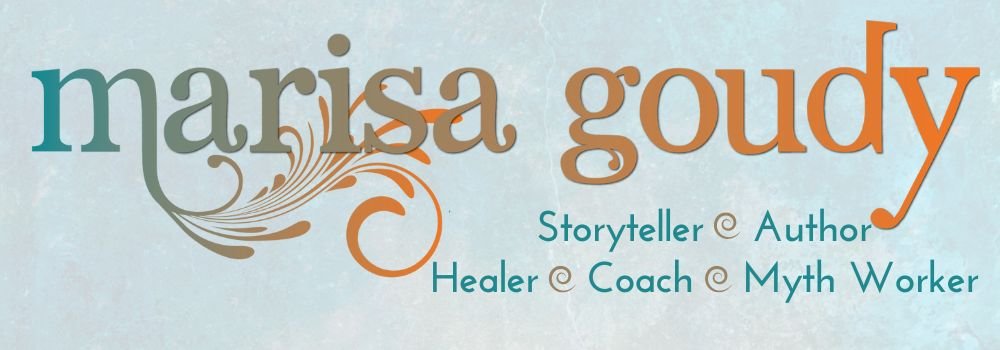


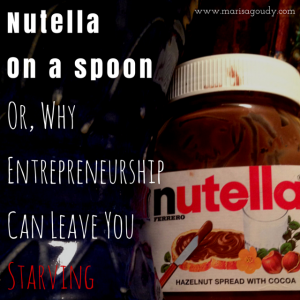
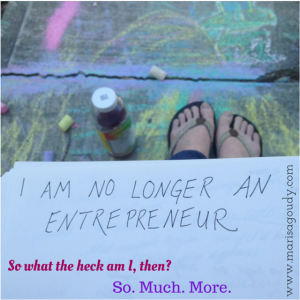


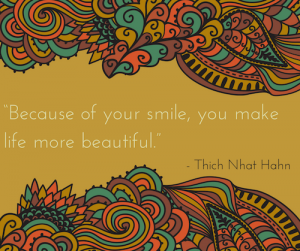
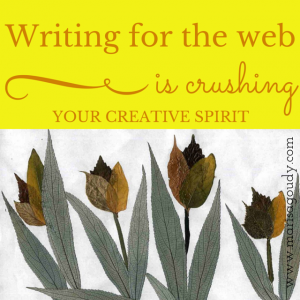
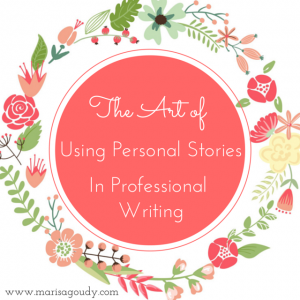
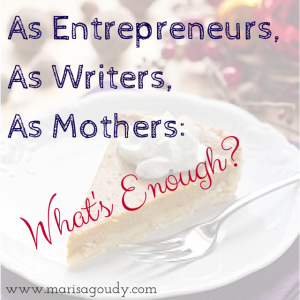

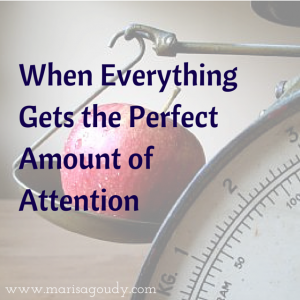
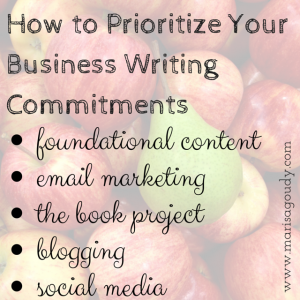

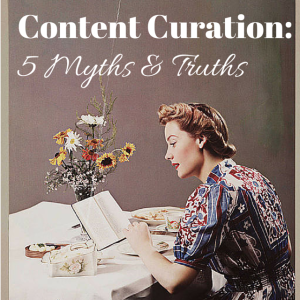

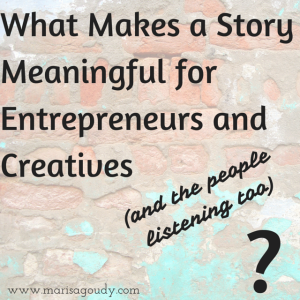 Or is it self serving? Is it the verbal unpacking of a lifetime’s baggage?
Or is it self serving? Is it the verbal unpacking of a lifetime’s baggage?